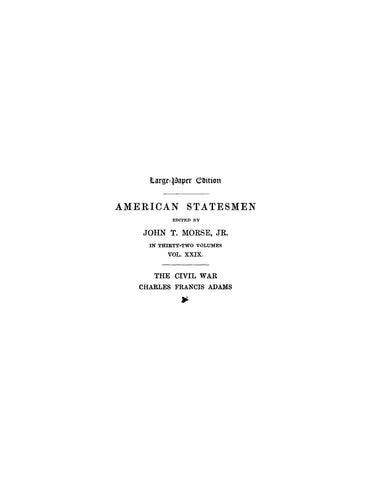
ADAMS: American Statesmen: The Civil War and Charles Francis Adams
by John T Morse. 1900. 426p
Charles Francis Adams assumed the editorship of the "Boston Whig" in 1846, a position that came with financial risks but also garnered support from influential figures. Amidst the growing anti-slavery movement, Adams actively engaged in debates and faced opposition from those with differing views. His involvement in confronting opponents and advocating for abolition showcased his commitment to social and political causes.
The influence of Adams' father, J.Q. Adams, a former President, was evident in his concerns about the Senate's authority and his foresight regarding potential constitutional challenges. J.Q. Adams' experiences in high office shaped his perspectives on political issues, including the potential for abuse of power and the importance of upholding democratic principles. This familial influence likely played a role in shaping Charles Francis Adams' own approach to governance and public service.
Over the span of fifty years, Charles Francis Adams diligently maintained a diary, providing a detailed record of his thoughts, experiences, and interactions. This extensive documentation offers valuable insights into his personal and professional life, serving as a foundational source for understanding his motivations and actions. The diary serves as a significant resource for historians and researchers seeking to delve into the life and times of Charles Francis Adams.
